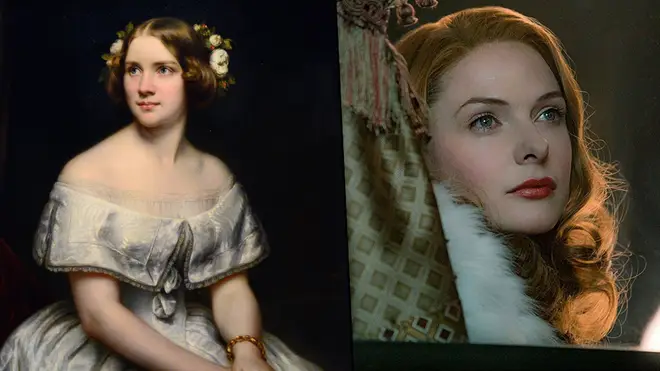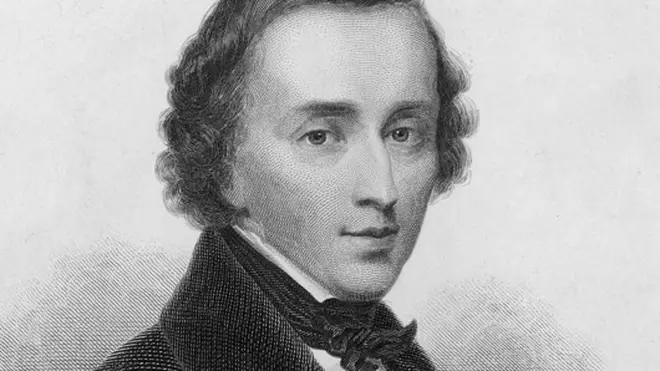Who was Jenny Lind, the real-life opera singer in The Greatest Showman?
13 November 2020, 17:08

Nicknamed the ‘Swedish Nightingale’, Jenny Lind was a soprano whose voice was admired by Chopin, Mendelssohn and Clara Schumann, no less! She may have found 21st-century fame from the film The Greatest Showman, but Lind was a lot more than P.T. Barnum’s singing money-maker.
At Jenny Lind’s London début in 1847 at the Haymarket, she gave a performance so arresting that Queen Victoria threw a bouquet of flowers at her feet.
Would you like to find out more about famous women of classical music?
But the Swedish Nightingale had unusual beginnings. Born out of wedlock and into a life of poverty, Lind had her first break at just nine years old, when she was accepted as a voice student at the Royal Theatre of Stockholm. By her early teens, she was a renowned opera singer.
What was her voice like?
Sure, The Greatest Showman has a fabulous pop-musical soundtrack, and Lind’s character’s belting ballad ‘Never Enough’ – dubbed by Loren Allred – is as ear-wormy as it gets. But it definitely isn’t opera.

The Greatest Showman - Never Enough [Official Lyric Video]
It is possible that the movie is making a point here about Lind being a popstar of her time – but being a 19th-century popstar was a slightly different ballgame.
Back then, Lind was praised for her elaborate ornamentations, impressive runs and ability to sing an incredibly simple tune and make it sound spectacular.
People loved her, and she became one of the most adored singers of the 1800s. The New York Tribune summarised her popularity: “Jenny Lind’s first concert is over; and all doubts are at an end. She is the greatest singer we have ever heard”.
Read more: ‘Never Enough’ from The Greatest Showman: who sings it and who wrote it? >
Did Jenny Lind have a relationship with P.T. Barnum?
A significant portion of The Greatest Showman’s plot revolves around P.T. Barnum’s infatuation with the talented Swedish singer, who eventually also falls for him and quits her career.
However entertaining their almost-love story might be, there isn’t *really* any truth in it.

In 1849, Lind appeared in her final opera, Robert le Diable, in 1849, and toured the US the following year with Barnum. But Lind was a deeply religious woman, and left the stage after meeting a clergyman who told her that singing on the operatic stage was ‘evil’. Her mother had encouraged similar beliefs.
Lind married her accompanist Otto Goldschmidt in 1852. She subsequently retired from singing, sticking to just a few one-off charity concerts.
Lind lived as a retired singer for the next 30 years, before becoming a teacher at the Royal College of Music, London, in 1883.
Read more: Who was Marni Nixon, the ‘ghost singer’ behind Hollywood actresses? >
It’s true that P.T. Barnum risked his whole fortune for Lind
In a desperate attempt to raise his public profile and scrap his circus-entertainer image, Barnum risked his whole fortune for Lind: a singer he’d never even heard sing, and who was barely known in the US.
His marketing campaign for her was unprecedented, as were his promises. He vowed she’d receive $1,000 a night for up to 150 nights of performances, and he paid salaries up-front, meaning he had to sell or mortgage everything he owned.
Fortunately, her debut in New York and the nine months of concerts that followed were phenomenally successful – and they gave Barnum the fame he craved.
She was admired by famous composers and writers
Felix Mendelssohn called Lind “as great an artist as ever lived; the greatest he had known”, and composed one of the arias in his oratorio Elijah with her voice in mind.
Lind also attracted the attention of Hans Christian Andersen, who fell in love with the singer, writing his story The Nightingale as a tribute to her. It was because of this that she got her nickname, the Swedish Nightingale.
It has been speculated that Lind had a relationship with the great Romantic composer Frédéric Chopin. In the later years of his life, the composer suffered from tuberculosis, and she would sing to him to make him feel better.
Chopin said of Lind: “This Swede does not show herself in the ordinary light of day but in the magic rays of the aurora borealis”. Her high notes, to which he was apparently referring, were pianissimo and gorgeous.

But it was the composer Clara Schumann who gave the highest praise of all.
“Lind has a genius for song which might come to pass only once in many years,” she wrote. “Her appearance is arresting at first glance and her face, although not exactly beautiful, appears so because of the expression in her wonderful eyes.
“Every tone she produces is sheer beauty. Her coloratura is the most consummate I have ever heard. Her voice is not large in itself, but it would certainly fill any room, for all its soul.”









































